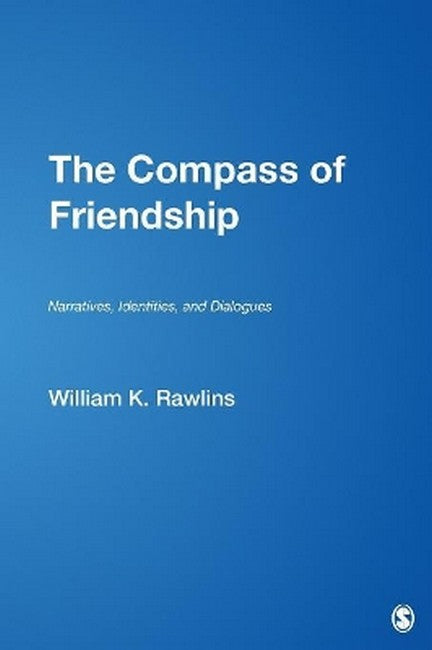William K. Rawlins (Ph.D., Temple University) is Stocker Professor in the School of Communication Studies at Ohio University. His book, Friendship Matters: Communication, Dialectics, and the Life Course, was selected as an Outstanding Academic Book for 1993 by the editors of Choice, and received the Gerald R. Miller Book Award in 1994 from the Interpersonal and Small Group Interaction Division of the National Communication Association. In 2002 he received The Theory That Has Left a Legacy Award: "The Dialectical Perspective" from the Communication Theory Interest Group of the Central States Communication Association. Over the past 25 years, Professor Rawlins has published extensively about the unique challenges and dialectical tensions of communicating in friendships. Bill teaches courses in communication in friendships across the life course, interpersonal and relational communication, communication theory, dialogue and experience, interpretive and ethnographic inquiry, communication and narrative, and Gregory Bateson and communication theory. While at Purdue University, he received the W. Charles Redding Award for Excellence in Teaching from the Department of Communication five times, the School of Liberal Arts Departmental Educational Excellence Award for 2000-2001, and the School of Liberal Arts Educational Excellence Award for 2002-2003.
Request Academic Copy
Please copy the ISBN for submitting review copy form
Description
1. Introduction: Living Friendship 2. Making Choices as Communicators: Similarity, Difference, Individuation, and Participation Perceiving Similarities and Differences Negotiating Contexts, Making Choices, and Creating Meanings Constructing Similarities and Differences of Self and Others Achieving and (Mis)Perceiving Identities Through the Dialectic of Individuation and Participation Categories and Identity Construction Modes of the Dialectic of Individuation and Participation 3. Communicating Friendship: A Dialogue of Narratives and a Narrative of Dialogues Storytelling Between Friends Practicing Dialogue Between Friends Narratives, Dialogues, and Friendships Interweaving Narrative and Dialogue in Discourses of Friendship Conclusion 4. Making Meanings With Friends: Two Women?s Storytelling and Dialogue Beginning the Conversation and the Story of Karen and Chris?s Friendship Narrating Diverging Life Paths Sharing Stories of Divorces and Traveling Together Side Two of the Tape ? Conversing About Pets and Policies Performing a Dialogue of Narratives About Conjunctive Freedoms Interweaving Narratives and Dialogue in the Talk of Two Friends 5. Talking With College Students About Frontiers and Frustrations of Cross-Sex Friendships Debating Cross-Sex Friendship Addressing Students? Positions on Cross-Sex Friendship Conclusion 6. Pursuing Cross-Race Friendships in Personal, Sociocultural, and Historical Contexts Constrained Cross-Race Friendship Blacks and Whites Engaging in Friendships: Asymmetrical Challenges and Edifying Practices Recognizing Meaningfully Whole Persons and Contingent Identities Accomplishing Cross-Race Friendship Making Choices, Learning Lessons, and Serving Social Becoming Through Cross-Race Friendships 7. Embracing Ethical and Political Potentials of Friendships Ethical Practices of Friendships Political Practices of Friendships Friendships and Social Change Limitations of Political Friendships 8. The Compass of Friendship
"[R]awlins's book provides a detailed and accessible explanation of friendship.[It] is intended for varying audiences, including students, professionals, social psychologists, and individuals curious about the nature of friendship. It is a good read, a textbook that will be useful to anyone seeking to know how to form friendships." -- Sherine Ramzy "Author William K. Rawlins uses compelling examples and cases from literature, films, dialogue and storytelling between actual friends, student discussions of cross-sex friendships, and interviews with interracial friends." -- Family Therapy "His research is solid, his writing is clear and accessible, and his insights into the human condition-and most specifically that dialogical-narrative and negotiated relationship we call friendship-are keen. His" next word" on friendship has been long awaited and much needed in the field of communication studies." -- Dr. Christopher N. Poulos

